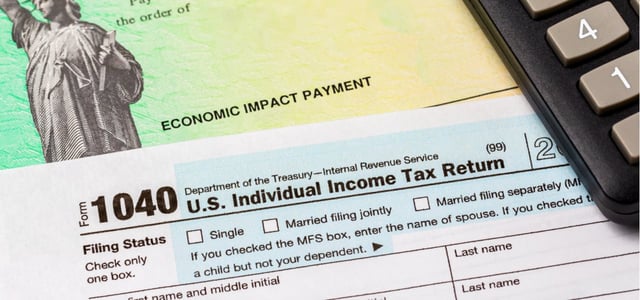Credit card reward programs have come a long way over the past decade, offering more opportunities than ever before to earn miles, points, and cash back on a variety of purchases.
In fact, one study by ValuePenguin found that three of the biggest credit card issuers — American Express, Discover, and Capital One — issued a combined $12.9 billion in rewards to cardholders in 2017. This is a 59% increase from what these companies spent on rewards just six years earlier in 2011.
Although this sounds like a great deal of money to be spent on rewards, credit card companies know that offering more incentives encourages consumers to sign up. The same report found that 69% of households nationwide were estimated to have participated in at least one type of credit card rewards program in 2017.
Meanwhile, 7 in 10 Americans have at least one credit card these days, and it’s not uncommon for consumers to have multiple credit cards to benefit from different reward programs. Some people may even open new card accounts just to qualify for the card’s signup bonus, known as credit card churning.
In light of the vast number of U.S. consumers earning various rewards by using their credit cards, it’s important to consider the potential impact of these incentives during tax time.
Signup Bonuses Are Generally Not Considered Income
Credit card companies use various promotional tactics to attract new customers, but perhaps the most appealing and popular of these methods is offering a signup bonus. Most credit card companies require new cardholders to spend a certain amount of money within the first few months of account opening to earn these welcome bonuses.
Other credit cards don’t require any action to earn the welcome bonus. Instead, the reward is issued immediately when the account is opened. Although both of these signup bonuses are nice perks, knowing which of these scenarios will cause you to incur an added tax liability is important.
Ultimately, the way you earn a reward will determine whether you owe taxes on it.
Although a signup bonus may feel like a windfall of money, it’s far from free. In fact, most of the time you must spend far more money than what you get back in the form of rewards from the credit card company.
For the most part, the IRS does not view signup bonuses as taxable income and generally has little interest in your credit card rewards.

How you earn your signup bonus determines whether you owe taxes on it, but most signup bonuses are generally not considered taxable income.
Most credit card rewards are categorized as a discount on a purchase or as a rebate rather than money earned. For this reason, you will not be required to report the reward amount you earned throughout the year on your tax report, nor will you be required to pay tax on the value of those rewards or signup bonuses. However, there are some exceptions to this rule.
How you earn a signup bonus in the first place will determine whether you have to pay a tax on it. Let’s take a look at two different scenarios.
Any signup bonuses awarded after a cardholder spends a certain amount of money or fulfills a purchase requirement by a set date are classified as a rebate instead of money earned and are not considered taxable.
For example, consider a card that offers a $200 bonus to new cardholders who spend at least $500 in the first three months of signing up. Or a card that offers a one-time signup bonus of 60,000 miles once you spend $3,000 on purchases within three months from account opening.
In both these instances, new cardholders who meet these spending requirements will earn a significant signup bonus. But they will not be on the hook for an additional tax bill because they were required to complete an action to receive the reward in the first place.
On the flip side, some credit cards, though few, offer a welcome bonus just for opening a new credit card. This means you may receive a cash bonus, extra points or miles, or a gift card without any additional action or required purchases. In this case, you may incur a tax liability for the signup bonus issued to you because it qualifies as earned income.
For instance, the Amazon Prime Rewards Visa Signature Card offers an Amazon Gift Card instantly upon credit card account approval. Earning this gift card requires you to do nothing other than apply for the card. Since you are not required to make a purchase or spend a certain amount of money by a certain date, the IRS views this as income and you will be required to report it on your tax file.
Tax Rules Regarding Business Credit Cards
These rules apply for business credit cards as they do for personal credit cards — any rewards earned for a purchase or meeting a minimum spending requirement do not qualify as taxable income.

If you use rewards to cover business expenses, you can only deduct the amount that came out of pocket — not what was covered by the rewards.
The only difference businesses should be aware of during tax time is whether they use these rewards to cover business-related expenses. If so, businesses are only allowed to deduct as a business expense the amount they actually paid out of pocket minus any rewards such as cash back as a statement credit or travel miles redeemed for a flight to offset the total cost.
Watch For 1099-INT and 1099-MISC Forms
Most credit card rewards and signup bonuses are irrelevant when tax time comes around, but you should pay attention to how you’re receiving any type of credit card reward and how that can affect your tax liability.
Any signup bonus that does not require you to make a purchase or spend a minimum amount of money within a certain time frame will incur a tax liability that will need to be reported and paid. In these instances, you can expect to receive a form from the IRS with the information you will be required to report on your tax form.
Specifically, look for Form 1099-INT if the value of the reward from your credit card company is $10 or more, or Form 1099-MISC if the reward amount is $600 or more. Even if you don’t receive a form from the credit card company, make sure to report that signup bonus in your tax report.
Bottom line — pay attention to how a signup bonus will be issued and what you are required to do to qualify for the bonus before determining whether you have to report the reward value in your tax file.
Advertiser Disclosure
CardRates.com is a free online resource that offers valuable content and comparison services to users. To keep this resource 100% free, we receive compensation for referrals for many of the offers listed on the site. Along with key review factors, this compensation may impact how and where products appear across CardRates.com (including, for example, the order in which they appear). CardRates.com does not include the entire universe of available offers. Editorial opinions expressed on the site are strictly our own and are not provided, endorsed, or approved by advertisers.




![7 Best Credit Card Signup Bonuses $200 – $1,250 ([updated_month_year]) 7 Best Credit Card Signup Bonuses $200 – $1,250 ([updated_month_year])](https://www.cardrates.com/images/uploads/2021/01/Best-Credit-Card-Signup-Bonuses.jpg?width=158&height=120&fit=crop)
![7 Credit Card Bonuses For Bad Credit ([updated_month_year]) 7 Credit Card Bonuses For Bad Credit ([updated_month_year])](https://www.cardrates.com/images/uploads/2019/12/Credit-Card-Bonuses-for-Bad-Credit-Feat.jpg?width=158&height=120&fit=crop)
![8 Business Credit Card Sign-Up Bonuses ($200 to $1250) – [updated_month_year] 8 Business Credit Card Sign-Up Bonuses ($200 to $1250) – [updated_month_year]](https://www.cardrates.com/images/uploads/2021/03/Business-Credit-Card-Sign-Up-Bonuses.jpg?width=158&height=120&fit=crop)
![11 Best Credit Card Sign-Up Bonuses ($200, $300, & $500) – [updated_month_year] 11 Best Credit Card Sign-Up Bonuses ($200, $300, & $500) – [updated_month_year]](https://www.cardrates.com/images/uploads/2021/03/Best-Credit-Card-Sign-Up-Bonuses-2.jpg?width=158&height=120&fit=crop)
![12 Best Credit Card Signup Bonus Offers ([updated_month_year]) 12 Best Credit Card Signup Bonus Offers ([updated_month_year])](https://www.cardrates.com/images/uploads/2017/06/credit-card-signup-bonus-offers.jpg?width=158&height=120&fit=crop)
![8 Best Credit Cards for $200 to $500+ Bonuses ([updated_month_year]) 8 Best Credit Cards for $200 to $500+ Bonuses ([updated_month_year])](https://www.cardrates.com/images/uploads/2018/05/500.png?width=158&height=120&fit=crop)
![7 Prepaid Cards With Referral Bonuses ([updated_month_year]) 7 Prepaid Cards With Referral Bonuses ([updated_month_year])](https://www.cardrates.com/images/uploads/2022/01/Prepaid-Cards-With-Referral-Bonuses.jpg?width=158&height=120&fit=crop)
![9 Best 0% APR Signup Bonus Credit Cards ([updated_month_year]) 9 Best 0% APR Signup Bonus Credit Cards ([updated_month_year])](https://www.cardrates.com/images/uploads/2023/10/Best-0-APR-Signup-Bonus-Credit-Cards-3.jpg?width=158&height=120&fit=crop)